Mozambique: Liberation stalwart Marina Pachinuapa receives Doctor Honoris Causa - Watch
Chapo–JD Vance meeting ushers in new phase for Mozambique–US relations
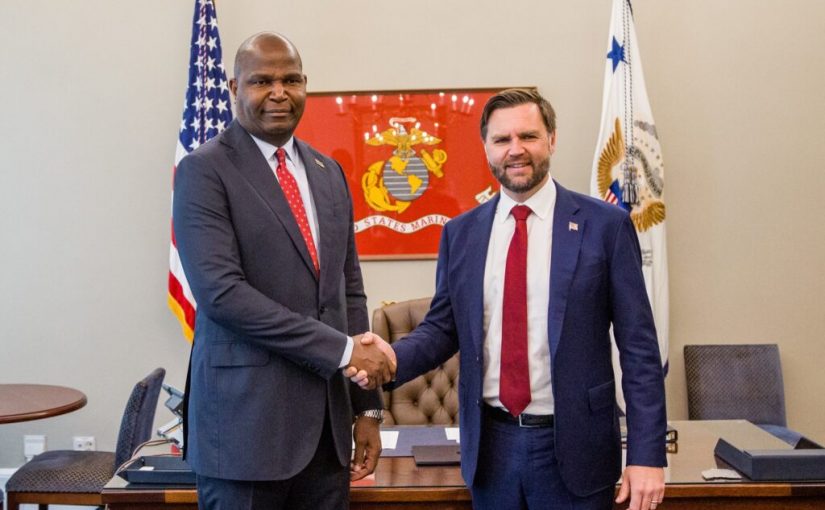
Photo: O País
In a highly symbolic diplomatic setting with a strong political charge, the President of the Republic of Mozambique, Daniel Francisco Chapo, was received this Thursday, October 30th, at the White House in Washington D.C., by the Vice President of the United States of America, JD Vance.
The meeting took place within the framework of the working visit that the Mozambican Head of State has been making to the United States since the 25th of this month, and was described by diplomatic sources as one of the most significant moments in Mozambique’s foreign policy in recent years.
The atmosphere at the seat of American power was one of cordiality and mutual recognition. Upon arrival, President Chapo was received with protocol honours and accompanied by members of his delegation and high-ranking officials of the American administration.
According to observers in Washington, “the meeting with JD Vance was a gesture of great political weight”, not only because it took place at the White House, but also because the Vice President represented President Donald Trump, who was absent from the country on an official mission to the Asian continent. In practice, JD Vance assumed, at that moment, the role of number one in the American political hierarchy, which, according to diplomatic sources, reflects the value that the United States attributes to its relationship with Mozambique and to the country’s role as an actor of stability and development in Southern Africa.
During the meeting, Daniel Chapo and JD Vance spoke at length about bilateral relations and ways to strengthen economic cooperation between the two countries.
The meeting’s agenda included key themes such as energy, infrastructure, US direct investment, agriculture, tourism, digital transition, security, and education. At the heart of the discussions was the ambition to build a modern partnership based on mutual trust and reciprocal benefits.
Daniel Chapo highlighted from the outset that Mozambique is committed to “creating an attractive and predictable environment for foreign investment”, and that the country is “opening a new era of economic cooperation”, based on concrete results and transparency. The Mozambican Head of State further emphasized that his government’s objective is to transform the country’s economic potential into real and sustainable development. “We want a balanced partnership, based not only on aid, but on productive investment, innovation, and knowledge transfer,” he stated.
The President explained that the country is diversifying its economy and investing heavily in industrialization, modernizing agriculture, and expanding the energy sector, including the development of natural gas, solar, and hydroelectric projects. Chapo stressed that Mozambique wants to position itself as “a strategic supplier of clean energy” for the Southern African region, while simultaneously contributing to reducing its energy dependence on neighbouring countries.
For his part, Vice President JD Vance praised the path of stability and reforms that Mozambique has been consolidating. He acknowledged “the remarkable progress” in the areas of economic governance and public finance management, emphasizing that the United States sees Mozambique as “a reliable partner with a vision for the future”. Vance stated that the US administration is available to “deepen economic relations and support structuring projects that create jobs and drive sustainable growth”.
The US official also highlighted the US interest in strengthening cooperation in the energy sector, particularly in energy transition and infrastructure modernization projects.
“Mozambique is a country with vast potential, with sun, water, and gas. We believe it can be a central player in Africa’s energy transformation and we are ready to support that path,” said JD Vance, according to sources close to the meeting.
The conversation also extended to topics of maritime security, combating terrorism, and human development. Daniel Chapo reiterated the importance of Mozambique being seen as “a pillar of peace and security” in the region, reinforcing the country’s commitment to dialogue and international cooperation.
According to sources from the Mozambican delegation, the President stressed the need for international partners to invest not only in large-scale projects, but also in capacity-building initiatives, technological innovation, and youth training.
JD Vance, for his part, showed particular interest in Mozambican policies on technical capacity building and the digitalization of the state. The Vice President highlighted the importance of training national personnel capable of managing and sustaining foreign investments, pointing to Mozambique as an example of a country that is aligning economic growth with social responsibility. “What we see in Mozambique is a development model that prioritizes people, education, and environmental balance,” he stated.
The reception of the Mozambican president at the White House is seen as a historic milestone in the country’s foreign policy. It is the first time that Daniel Chapo, as Head of State, has been received at the highest level in the United States, consolidating Mozambique’s presence on the strategic radar of American policy towards Africa.
Analysts interviewed by O País emphasize that this meeting “is the culmination of a series of diplomatic interactions that Mozambique has been developing with American institutions, including the IMF, the World Bank, the DFC, and the Millennium Challenge Corporation”.
The political importance of the meeting is reinforced by the profile of JD Vance, considered one of the most promising faces of the new generation of American politicians. With a background in Political Science and Law, Vance gained prominence as an author and analyst before entering politics, where he distinguished himself by advocating pragmatic diplomacy and sustainable strategic alliances. Today, he is an influential voice in defining Washington’s economic and foreign policies, particularly in relations with the African continent.
Sources close to the White House consider the meeting with Daniel Chapo to represent “a new stage in the rapprochement between Washington and Maputo”, in a context where the United States seeks to strengthen partnerships with politically stable African countries with significant economic potential. The meeting thus consolidates Mozambique’s image as a reliable partner in a continent increasingly central to global geopolitical and energy disputes.
At the end of the audience, President Daniel Chapo reaffirmed Mozambique’s commitment to “working with all partners who believe in shared development and sustainable progress”. For the Head of State, the path forward involves “investing in people, innovation, and good governance, because growth is only real when it improves the lives of the population”.
In his farewell remarks, JD Vance highlighted that the meeting “reinforces mutual trust and opens space for joint projects in strategic sectors”. The Vice President emphasized that “the United States values Mozambique not only for its resources, but for its vision and stability”.
Daniel Chapo’s visit to the United States is part of a new policy of active economic diplomacy, aimed at attracting foreign investment, diversifying partnerships, and positioning Mozambique as a relevant player in global value chains. In recent weeks, the President met with executives from the IMF, World Bank, DFC, ExxonMobil, MCC, and other important institutions, carrying a clear message: Mozambique wants to be a partner in solutions, not just a recipient of aid.
The meeting at the White House thus concludes an intense agenda of economic diplomacy that places Mozambique at the centre of international attention. A country in transformation, betting on stability, modernization and smart partnerships. And an unequivocal message to the world: Mozambique is ready to grow sustainably, open to investment, and committed to progress.


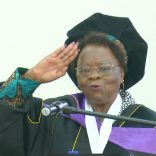
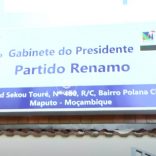
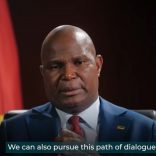
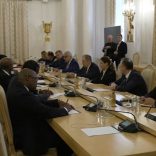






Leave a Reply
Be the First to Comment!
You must be logged in to post a comment.
You must be logged in to post a comment.